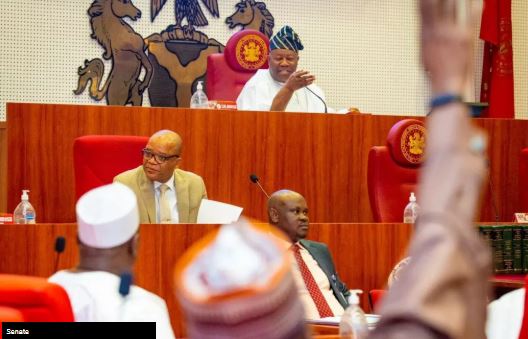Physical Address
60 Ekwema Cres, Layout 460281, Imo
Physical Address
60 Ekwema Cres, Layout 460281, Imo

Senate New Insurance Bill: The Nigerian government has ushered in a new change to the insurance system. The Senate, on Tuesday, passed the Nigerian Insurance Industry Reform Bill, 2024.
In the capital requirement enshrined in the bill, a person shall not carry on an insurance business in Nigeria unless the insurer has and maintains, while carrying on that business, a certain minimum capital.
The senate new insurance bill was sponsored by Adetokunbo Abiru (APC, Lagos East), the chairman of the Senate Committee on Banking, Insurance, and Other Financial Institutions.

The upper chamber passed the bill after considering the committee’s report clause by clause at the Committee of the Whole, chaired by the Deputy Senate President, Barau Jibrin.
It was passed after most lawmakers supported it when Mr Jibrin put it to a voice vote.
The bill seeks to regulate the insurance business in Nigeria by consolidating various existing legislations such as the Insurance Act, 2003; the Marine Insurance Act; Motor Vehicles (Third Party Insurance) Act; the National Insurance Corporation of Nigeria Act; and the Nigeria Reinsurance Corporation Act.
Also Read: LH Telecoms Buys 95.5% of 9mobile, Names New Board and CEO
In the case of non-life insurance business, the higher of — (i) ₦25,000,000,000.00, or risk-based capital determined from time to time by the Commission:
“In the case of life assurance business, the higher of (i) ₦15,000,000,000.00, or risk-based capital determined from time to time by the Commission.
“In the case of reinsurance business, the higher of (i) ₦45,000,000,000.00, and risk-based capital determined from time to time by the Commission,” the bill partly reads.
The bill also proposes a penalty of N25 million for individuals found operating unlicensed insurance businesses in the country.
While presenting the committee’s report, Mr Abiru said the increments were necessary because of the depreciation in the value of Nigerian currency.
The lawmaker also explained that the increase was because of the Finance Act 2022, which redefined the composition of the capital, international competitiveness, and AfCFTA.